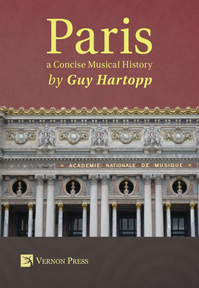Blues in the 21st Century: Myth, Self-Expression and Trans-Culturalism
Douglas Mark Ponton, Uwe Zagratzki (Eds.)
by Giulia Magazzù (University “Gabriele D’Annunzio”, Chieti-Pescara, Italy), Thomas Claviez (University of Bern, Switzerland), Adriano Elia (University of Roma Tre, Italy), Iain Halliday (University of Catania, Italy), Jean Charles Khalifa (University of Poitiers, France), Yves Laberge (Université du Québec à Montréal, Canada), Randolph Lewis (University of Austin, Texas, USA), Daniel Lieberfeld (Duquesne University, USA), Diego Pani (Memorial University of Newfoundland, Canada), Emiliano Bonanomi (University of East London), Patrizi Chiara (University of Roma Tre, Italy), Irene Polimante (University of Macerata, Italy), Douglas Mark Ponton (University of Catania, Italy), Diana Sfetlana Stoica (West University of Timisoara, Romania), Uwe Zagratzki (University of Szczecin, Poland), Jack Dandy (University of East London), Valerio Massimo De Angelis (University of Macerata, Italy)
Purchase this book
(click here to change currency)
The volume Blues in the 21st Century: Myth, Self-Expression and Trans-Culturalism, edited by Douglas Mark Ponton and Uwe Zagratzki offers innovatively fresh approaches to the rich field of Blues studies. It does so by including voices from disciplines such as literary, cultural, and media studies as well as musicology, sociology and linguistics to inquire into the key—albeit contested—concept of authenticity. From race relations to digitality: the developments of 21st century Blues culture is a both fascinating and highly relevant topic and should be of interest to a great number of humanities scholars.
Dr Julius Greve
Institute for English and American Studies
University of Oldenburg, Germany
This book is an amazingly original interdisciplinary study of blues. The contributors to the volume explore this extraordinary musical and cultural phenomenon from various analytical perspectives, including Cultural Studies, Musicology, Literary Criticism, and Linguistics. They focus both on the works of individual artists, including Jimi Hendrix, Lightnin’ Hopkins, Ali Farka Touré; and on specific features of the Blues as a genre, its flexibility, changeability and evolution. The authors convincingly demonstrate that since its beginnings in the late nineteenth century the Blues has been more than a music style, by the 21st century it has become a transcultural medium of social and emotional expression, “a language and a body of cultural practices”. They rightly argue in the preface to the book, that “The popularity of the Blues among white audiences is testimony that its message, whatever it is, speaks not just to the skin but to the soul”. The volume explores a variety of issues that include authenticity, vocal technique, identity and emotions in Blues lyrics. The book is a significant contribution to the continuation of scholarly study of the Blues, and there is no doubt that it will be of great interest and demand among a readership not indifferent to this fascinating cultural, musical, social and philosophical phenomenon.
Dr Vladimir Ozyumenko
Professor of English Language
People’s Friendship University of Russia, Russia
The book is the fruit of Douglas Mark Ponton’s and co-editor Uwe Zagratzki’s enduring interest in the Blues as a musical and cultural phenomenon and source of personal inspiration. Continuing in the tradition of Blues studies established by the likes of Samuel Charters and Paul Oliver, the authors hope to contribute to the revitalisation of the field through a multi-disciplinary approach designed to explore this constantly evolving social phenomenon in all its heterogeneity.
Focusing either on particular artists (Lightnin’ Hopkins, Robert Johnson), or specific texts (Langston Hughes’ Weary Blues and Backlash Blues, Jimi Hendrix’s Machine Gun), the book tackles issues ranging from authenticity and musicology in Blues performance to the Blues in diaspora, while also applying techniques of linguistic analysis to the corpora of Blues texts. While some chapters focus on the Blues as a quintessentially American phenomenon, linked to a specific social context, others see it in its current evolutions, as the bearer of vital cultural attitudes into the digital age.
This multidisciplinary volume will appeal to a broad range of scholars operating in a number of different academic disciplines, including Musicology, Linguistics, Sociology, History, Ethnomusicology, Literature, Economics and Cultural Studies. It will also interest educators across the Humanities, and could be used to exemplify the application to data of specific analytical methodologies, and as a general introduction to the field of Blues studies.
List of Figures
List of Tables
Preface
Acknowledgements
Part One:
Blues impressions: responding to the music
1. Trouble in mind: the Blues according to Lightnin’ Hopkins
2. Scales of Blue: the contagion and dissemination, the persistence and transformations of a form and a name
3. The old black or the new white. Identities in postmodern lyrics: the case of the King of Desert’s Blues, Ali Farka Touré
4. Hendrix’s “Machine Gun” and the limitations of Blues performance
5. The protean character of the Blues
Part Two:
Blues on the page: perspectives from literary criticism
6. “Singing your mean old Backlash Blues”: Blues, history, and racial inequality today
7. Going back home: the politics of the blues in Langston Hughes’s “The Backlash Blues”
8. A Bluesy sound: from Weary Blues to “Nigger-Reecan Blues”
9. “The Weary Blues” by Langston Hughes: catharsis and the healing power of poetry and music
Part Three:
Authenticity and identity in contemporary Blues studies
10. Dead or alive: Blues and the question of authenticity
11. I’m goin’ away to a world unknown: a corpus study of classic Blues lyrics
12. The devil’s music–a critical discourse analysis-based study of the lyrics of Robert Johnson
13. How blue is our Blues? The validation of Blues in the 21st century and the role of technology and social media in its progression
14. Black and White Blues: the sounds of Delta Blues singing
Appendix:
Black and White Blues Corpora
Author biographies
Index
Douglas Mark Ponton is Associate Professor of English Language and Translation at the Department of Political and Social Sciences, University of Catania. His research interests include political discourse analysis, ecolinguistics, interactive sociolinguistics, applied linguistics, pragmatics, corpus linguistics, and critical discourse studies; he is also a keen amateur musician. Ponton's main publications are For Arguments’ Sake: Speaker Evaluation in Modern Political Discourse, and Meaning Politics: A Manual of Political Discourse Analysis. As well as politics, his research deals with a variety of social topics, including tourism, the discourse of mediation, ecology, local dialect and folk traditions, including proverbs and Blues music. He has also published a paper on the figure of the bandit in popular song, exploring the lyrics of Bob Dylan and Woody Guthrie.
Uwe Zagratzki is Professor of Anglophone Literatures and Cultures and the Chair of Literature at the Institute of English, University of Szczecin, Poland. He has widely published on the topics of Scottish and Canadian Literature and Culture, Cultural Studies and War and Literature. His recent publications include co-editorships of and contributions to Ideological Battlegrounds – Constructions of Us and Them Before and After 9/11, Exile and Migration, Disrespected Neighbo(u)rs – Cultural Stereotypes in Literature and Film, Perspectives on Canada – International Canadian Studies despite Harper and Trudeau. His interest in the culture of the Blues, evolving from an early passion for rhythmical music, manifests itself in a study of the Blues in Germany (with Winfried Siebers, Das Blaue Wunder – Blues aus deutschen Landen) and contributions to specific collections (e.g. “From Early Country Blues to Rap” in Chaos in the Contact Zone, 2017). He is also a founding member of a local group of Blues enthusiasts in Northwest Germany. After having organised annual international Blues concerts for 25 years, their 'Blueslawine' ('Blues Avalanche') was awarded the best national Blues event in 2017.
Blues, Social History, Afro-American Culture, Linguistic Ethnography, Cultural Anthopology, Sociology
See also
Bibliographic Information
Book Title
Blues in the 21st Century: Myth, Self-Expression and Trans-Culturalism
ISBN
978-1-62273-634-8
Edition
1st
Number of pages
226
Physical size
236mm x 160mm

![Blues in the 21st Century: Myth, Self-Expression and Trans-Culturalism [Hardback]](/file/11224/829bc812bf1652867f2f65db63122c19/1581348673.jpg)





